
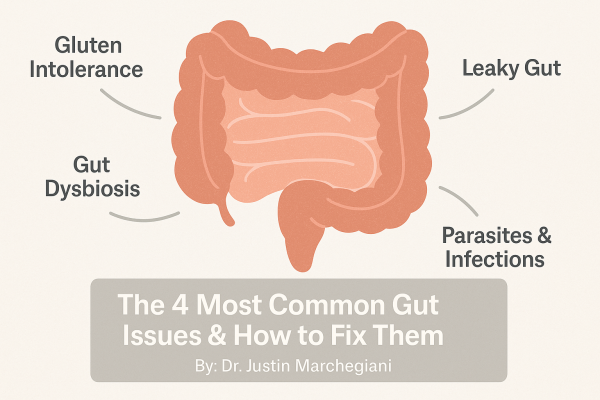
By: Dr. Justin Marchegiani
A healthy gut is the cornerstone of overall wellness, influencing everything from energy and mood to skin health and immune function. Unfortunately, modern diets, environmental toxins, and chronic stress leave many people grappling with digestive woes. This article explores the four most prevalent gut problems—gluten intolerance, leaky gut, dysbiosis, and parasitic infections—and offers evidence-based, functional medicine solutions to restore balance and vitality.
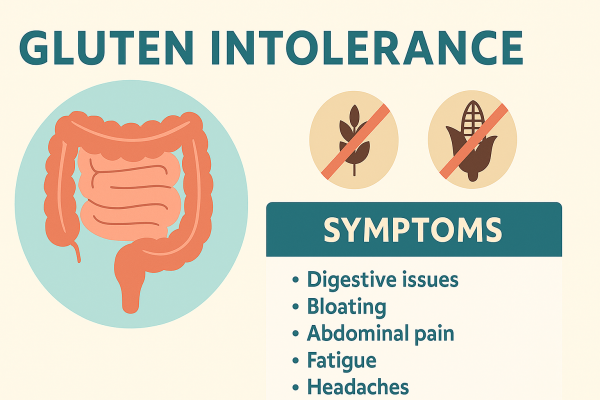
Gluten—a protein found in wheat, barley, and rye—can trigger a spectrum of reactions. While Celiac disease and true wheat allergy are relatively rare, non-celiac gluten sensitivity (NCGS) affects up to 6% of the population, causing symptoms like IBS, brain fog, skin rashes, mood disturbances, and fatigue[^1]. Even trace cross-contamination in oats, quinoa, rice, or corn products can provoke a reaction in sensitive individuals.
How to Fix It
Elimination Diet: Remove all gluten-containing and cross-reactive foods for 4–6 weeks, then reintroduce to assess tolerance.
Nutrient Support: Address deficiencies in B vitamins, iron, and zinc with targeted supplementation.
Gut-Healing Nutrients: Supplement with L-glutamine, zinc carnosine, and anti-inflammatory botanicals (e.g., curcumin).
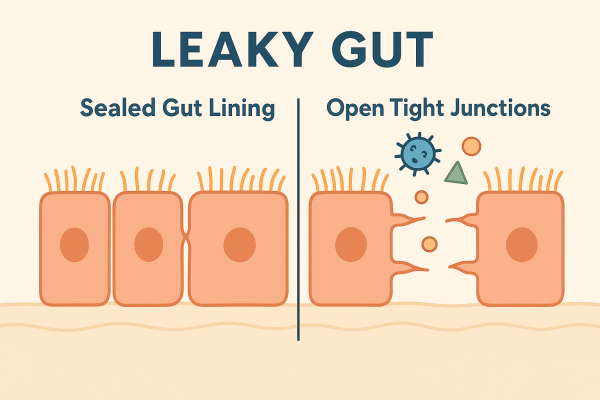
Leaky gut, or increased intestinal permeability, occurs when inflammation (from infections, dysbiosis, or food sensitivities) disrupts the tight junctions between enterocytes. This “leak” allows undigested proteins and toxins into the bloodstream, fueling systemic inflammation and autoimmunity[^2].
How to Fix It
Remove Triggers: Eliminate gluten, dairy, sugar, alcohol, and any reactive foods.
Digestive Support: Use digestive enzymes, betaine HCl, and bile salts to improve nutrient breakdown.
Repair Protocol: Incorporate gut-healing compounds such as aloe vera, slippery elm, and collagen peptides.
Reinoculate Flora: Rotate broad-spectrum probiotics (Lactobacillus, Bifidobacterium) plus spore-forming strains to strengthen tight-junction proteins.
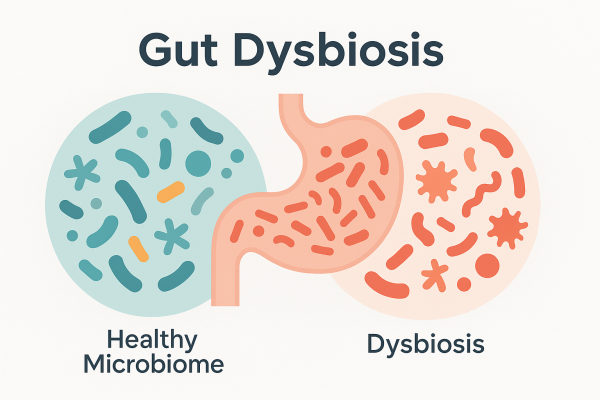
Your microbiome—trillions of bacteria, fungi, and viruses—functions as your “second brain,” influencing metabolism, immunity, and even neurotransmitter production. Dysbiosis (an imbalance in microbial communities) is linked to asthma, allergies, autoimmune conditions, cognitive decline, fatigue, and SIBO[^3].
How to Fix It
Antimicrobial Herbs: Use protocols with oregano oil, berberine, and grapefruit seed extract to rebalance overgrowth.
Prebiotics & Fiber: Feed beneficial bacteria with inulin, acacia fiber, and resistant starch.
Fermented Foods: Daily servings of sauerkraut, kefir, or kombucha to introduce live cultures.
Lifestyle Factors: Reduce chronic stress, get adequate sleep, and minimize unnecessary antibiotic use.
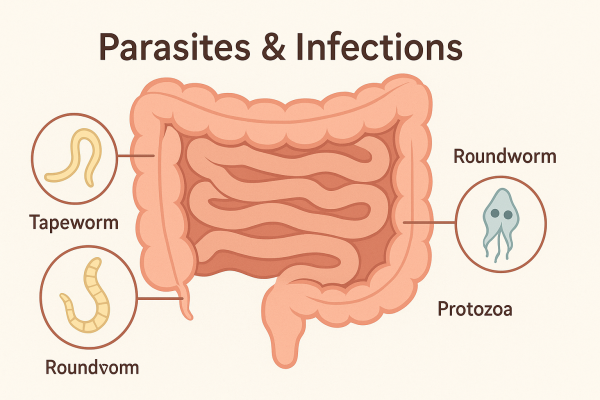
Parasitic infections—ranging from protozoa (Giardia, Blastocystis hominis) to helminths (roundworms, tapeworms)—can stealthily sap nutrients, trigger inflammation, and produce biotoxins[^4]. Symptoms include bloating, gas, mood swings, skin issues, and nutrient deficiencies.
How to Fix It
Comprehensive Testing: Stool PCR panels (e.g., GI-MAP) to identify specific pathogens.
Herbal Antimicrobials: Artemisinin, black walnut, and clove for broad-spectrum parasite clearance.
Support Detox: Bind biotoxins with binders like activated charcoal and bentonite clay.
Rebuild Flora: Follow up with targeted probiotics to restore healthy microbial balance.
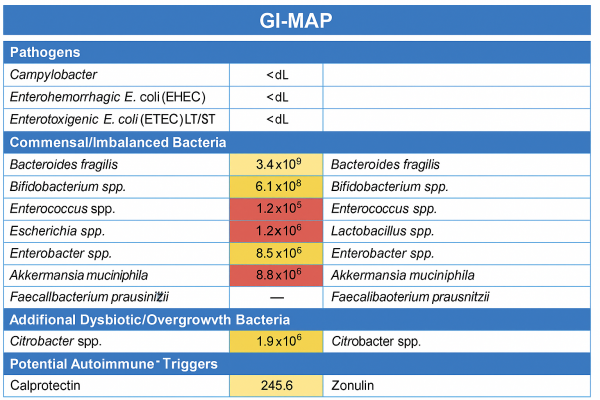
Functional medicine leverages advanced lab tests to uncover hidden triggers and personalize treatment plans. Here’s how Dr. J’s approach uses data to drive healing:
Comprehensive Stool Analysis (GI-MAP):
Quantifies bacterial diversity, pathogens, and markers of inflammation (calprotectin, zonulin).
Guides targeted antimicrobial and probiotic protocols to restore balance.
Organic Acids Test (OAT):
Measures metabolic byproducts reflecting yeast overgrowth, bacterial dysbiosis, and nutrient deficiencies.
Helps prioritize interventions for mitochondrial support, detoxification, and neurotransmitter balance.
Small Intestinal Bacterial Overgrowth (SIBO) Breath Test:
Detects hydrogen and methane production from bacterial fermentation in the small intestine.
Informs choice between rotating antibiotics (rifaximin) or herbal regimens (allicin, neem).
Micronutrient Panel:
Assesses vitamins, minerals, antioxidants, and amino acids to correct deficiencies that compromise gut integrity and immune function.
By integrating these labs, we can move beyond symptom management to address root causes—optimizing diet, supplements, and lifestyle for lasting gut repair.
Paleo-Inspired, Whole Foods Diet: Emphasize grass-fed meats, wild fish, pastured eggs, and colorful organic produce.
Mindful Eating: Chew thoroughly, eat without distractions, and honor hunger/fullness cues.
Stress Management: Incorporate meditation, deep breathing, and regular movement to modulate the gut-brain axis.
Hydration & Sleep: Aim for 7–9 hours of quality sleep and half your body weight (in ounces) of filtered water daily.
If you’re suffering from bloating, brain fog, fatigue, or any of the issues above, functional medicine can help you uncover the root cause and develop a customized healing plan. Reach out to Dr. J and schedule your free consult today:
👉 www.justinhealth.com/free-consult
References:
Fasano, A. Leaky Gut and Gluten Sensitivity. Clin Rev Allergy Immunol. 2012;42(1):71–78. PubMed
Vojdani, A. et al. Zonulin, gut permeability, and autoimmunity. Ann N Y Acad Sci. 2014;1317:7–14. PubMed
Shin, N.-R. et al. Gut microbiota in health and disease. Pharmacol Res. 2015;69(1):11–25. PubMed
Lane, S. et al. Parasitic infections: global health issues. Int J Infect Dis. 2018;66:12–18. PubMed
Hill, C. et al. Expert consensus document: The International Scientific Association for Probiotics and Prebiotics consensus statement on the scope and appropriate use of the term probiotic. Nat Rev Gastroenterol Hepatol. 2014;11(8):506–514. PubMed
==================
Recommended Products
===================
Recommended Lab Tests
===================
IN CASE YOU MISSED IT:
Probiotic Intolerance Explained – Why Good Bacteria Can Go Bad with Rob Edwards | #450